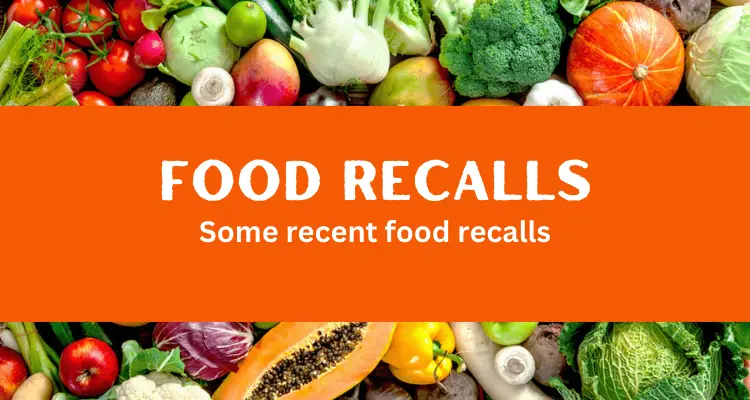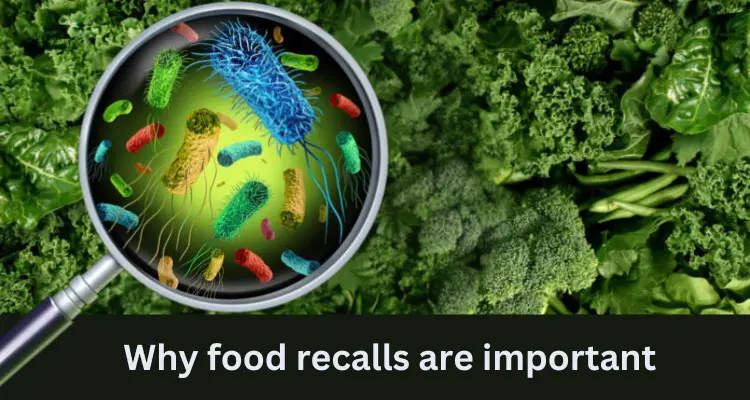In the United States, several government agencies provide food recalls safety through a system that many consider to be one of the best in the world.
These include the Food Inspection and Safety Service (FSIS), a department of the Department of Agriculture (USDA), the Centers for Disease Control and Prevention (CDC) and the food recalls and Pharmaceutical Administration (FDA), three organizations that work together to protect consumers and quickly recall any product deemed dangerous.
Why food recalls are important
During a recall, a product is withdrawn from the market by food recalls producers because it may have been mislabelled or unfit for consumption.
Reminder is voluntary, but sometimes it is required by government agencies after a disease is unrader or discovered in the product of a pathogen, a foreign matter or an undeclared allergen.
FSIS is responsible for ensuring the safety of imported and unreserved meat, poultry and egg products, and ensures that they are well labelled, in accordance with federal laws.
The FDA regulates almost all other foods and food recalls ingredients (except catfish, which falls under the jurisdiction of the Department of Agriculture).
Some recent food recalls
Reminders protect consumers. In April, Tennessee Brown Bag recalled just over 2 tons of dried beef products that had not been inspected by the USDA. The Tennessee Department of Agriculture discovered the problem and warned the FSIS, which led to an investigation.

The Act revealed that the dried beef does not have the USDA inspection stamp and that it was produced in a factory not previously inspected by the authorities. For fear that consumers bought it, the USDA issued a notice advising to return the product to the place of purchase or to dispose of it. (In this case, there were no confirmed findings of adverse reactions in consumers while eating.)
More recently, J.M. Smucker made a voluntary recall of 49 products from the JIF brand based on peanut butter, as FDA identified a plant in Lexington, Kentucky, as causing a salmonella epidemic. The agency, together with the CDC and local partners and the state of Kentucky, continues to investigate the multi-state epidemic. In addition, 16 companies that processed this peanut butter by repackaging it or using it as an ingredient in other products have also authorised recalls of their products.
Measures taken by agencies and businesses
During reminders, FSIS and FDA food recalls publish press releases or public health alerts on their website. The media then broadcast these alerts everywhere.
The recall measures taken by food recalls manufacturers vary according to the type of product and the reason for the recall. Companies often implement new procedures or train staff.
The FDA terminates the recall only after determining that the product has been removed and disposed of or corrected, depending on the degree of danger.
For its part, the FSIS ends the recall when it finds that the company has taken sufficient measures to recover and dispose of the product correctly.
“Food recalls safety requires collaboration,” said FDA Deputy Commissioner for Food Safety Policies and Interventions, FDA, at a food safety event in 2021. “It is a shared responsibility, and it concerns us all. That is why today’s calls for action are addressed to governments, food recalls producers, business leaders and consumers around the world to help ensure that the food we buy, sell, eat and serve to our customers, friends and families are healthy and good. ”
You read similar news:- The US cucumbers recalled: FDA issues warning against sale, consumption of contaminated plant

